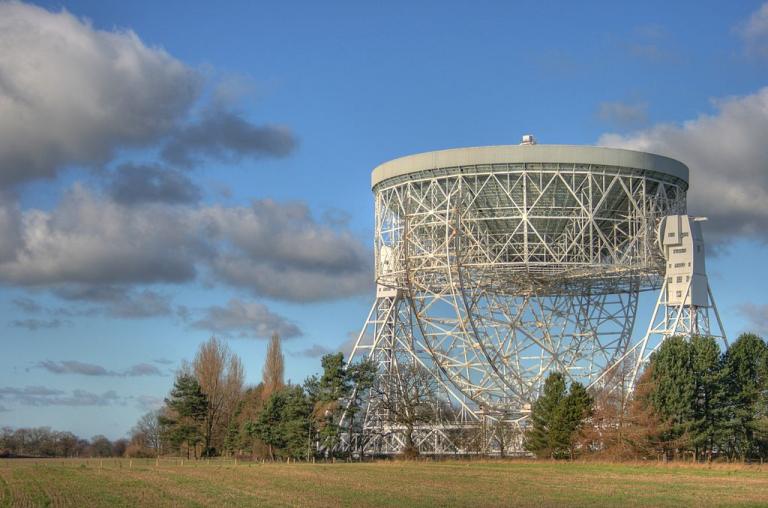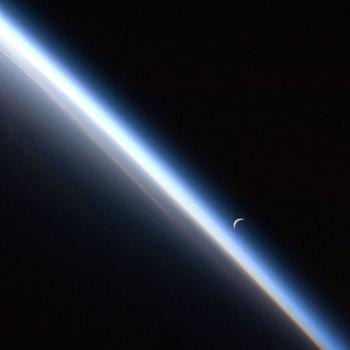
(Wikimedia Commons public domain image)
“From 1953 onward, Willy Fowler and I have always been intrigued by the remarkable relation of the 7.65 Mev energy level in the nucleus of Carbon 12 to the 7.12 Mev level in Oxygen 16. if you wanted to produce carbon and oxygen in roughly equal quantities by stellar nucleosynthesis, these are the two levels you have to fix, and your fixing would have to be just where these levels are actually found to be. Another put-up job? Following the above argument, I am inclined to think so. A common sense interpretation of the facts suggests that a superintellect has monkeyed with physics, as well as with chemistry and biology, and that there are no blind forces worth speaking about in nature.”
Sir Fred Hoyle (Cambridge astrophysicist and perhaps wavering atheist), “The Universe: Past and Present Reflections”
“The ghostly presence of virtual particles defies rational common sense and is non-intuitive for those unacquainted with physics. Religious belief in God, and Christian belief . . . may seem strange to common-sense thinking. But when the most elementary physical things behave in this way, we should be prepared to accept that the deepest aspects of our existence go beyond our common-sense understanding.”
Antony Hewish, British radio astronomer and 1974 Nobel laureate in Physics
***
Two quotations from Modern Physics and Ancient Faith, by Stephen M. Barr, a cosmologist and theoretical particle physicist at the University of Delaware:
***
Many people think that the advances of modern science make continued religious belief more difficult, if not altogether impossible. To the contrary, I think — and I’m not alone in thinking — that the science of today is in some ways distinctly more friendly to theism than the science of my high school and undergraduate days was. For instance, intriguing suggestions of cosmic fine-tuning (such as that mentioned by Sir Fred Hoyle, above) were nowhere to be found when I was first paying serious attention to science. Everything was purely mechanistic, random, apparently purposeless. I didn’t hear much about “beauty” as a key to scientific discovery, or about the inexplicable orderliness of the cosmos or the “unreasonable effectiveness of mathematics” back then. Nowadays, though, I do.
Posted from San Diego, California












